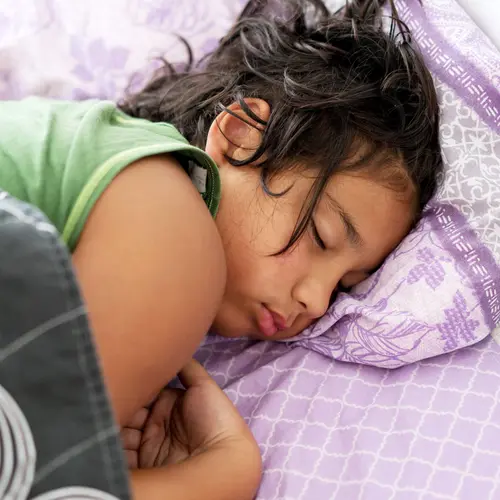If you're in the midst of potty training your child, you have a lot on your mind. Do they really need to go again, thirty seconds after they said they needed to go -- and didn't? Should they wear pull-ups or underwear? Are they ready to go all night without a diaper? But in the midst of all this, there's something else to think about: cleanliness while you potty train your child.
Successful potty training goes a long way toward keeping your home and environment cleaner, says Donna Duberg, MA, MS, an assistant professor of clinical laboratory science at Saint Louis University.
"The longer a child is in diapers, the more opportunity they have to get their hands into a dirty diaper," Duberg tells WebMD. And getting kids out of diapers helps reduce the rashes and abrasions diapers sometimes cause, while keeping disposable diapers out of the landfill -- and their bacteria out of the ground water.
So assuming that your child is ready for potty training, how do you keep everything clean while they are learning?
With Potty Training, It's Location, Location, Location
One handy trick can help keep germs at bay and drive the potty training message home at the same time. "Once your child starts toilet training, do all diaper changes and everything else in the bathroom," says Constantinos Kintiroglou, MD, a New Jersey pediatrician. "That sends the message that this is the place where this sort of thing happens, and you will also run into fewer problems with cleanliness in the rest of the house."
Have a potty chair or child seat for an adult toilet in multiple bathrooms, so you don't have to rush to the one bathroom that has the right facilities for your child when the need to go is urgent. That can reduce the number of "halfway there" accidents and the need for cleanup.
The Potty Training Potty Itself
Potty chairs these days come in all varieties -- some literally have bells and whistles. But they haven't invented a self-cleaning potty chair yet. So whether you have a potty seat or an insert for an adult toilet, it will need to be cleaned regularly.
Urine is, in fact, sterile, so if your child has just urinated, you may only need to dump the receptacle out in the toilet, rinse, and wipe with a cleansing wipe. But since fecal material can contain bacterial and viral germs, the potty should be cleaned more thoroughly every time your child has a bowel movement.
"Spray all [potty] surfaces with a 10% bleach solution, and let it soak for at least ten minutes," says Duberg. "Then be sure to wash and rinse thoroughly with hot, soapy water, because you don't want any bleach remaining on a surface that children or pets might put their mouths on."
Don't forget about the area around the basin, too: lids, armrests, and seats. Those should be cleaned just as you'd clean the receptacle itself.
Don't use basin, tub, and tile cleaners to clean potty training chairs, says Duberg. "Most of those are plastic, and these cleaners are meant for porcelain. This can lead to pitting in the plastic surface, allowing bacteria to work its way in."
Potty chairs, training pants, and other bathroom-related items should always be cleaned in the bathroom or laundry sink, never in the kitchen or anywhere that food is prepared.
Modeling Good Potty Training Habits
Model clean bathroom habits for your child: wash your hands thoroughly every time you use the bathroom yourself, and make sure your child does as well. Keeping fun pump soaps handy in the bathroom can encourage hand washing. To ensure that they wash long enough, they can sing a favorite song, like "Twinkle, Twinkle Little Star," or "Happy Birthday," while they're washing.
What if your child has an accident while wearing "big kid underwear" or training pants?
Again, urine is sterile, so if the pants are only wet, you don't have to run a wash load right away, says Kintiroglou. But if they've had a movement in their underwear, the pants should be rinsed immediately in hot water and then put straight into the washer for washing at your hottest setting, with bleach.
"Even if they've been thoroughly rinsed, pants that have had feces in them shouldn't be left sitting in a hamper or wash machine without being washed," Kintiroglou tells WebMD. "Children, especially if they're in day care, can be carrying various strains of gastroenteritis like rotavirus in their feces."
While your child is learning to stay dry at night, it's a good idea to keep a plastic sheet on the bed in case of bed-wetting says Duberg. "This helps to prevent urine staining the mattress, and again, although urine is sterile, it is a good culture medium for other bacteria."
The best way to keep your child and home clean while potty training, says Kintiroglou, is to model clean practices yourself. "Children are very observant of what we do," he says. "If they see you closing the lid when you flush, washing your hands, using good bathroom habits, they'll learn that this is part of the process."


